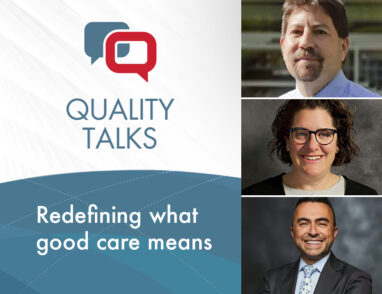The Double-Edged Sword: Insured and Still at Risk
January 12, 2016 · Shireesha Jevaji

We assume that having health insurance will stave off the possibility of overwhelming medical debt. Our premiums add to our insurance company’s deep pot of money—the pot it will draw from to help us out if we have a medical emergency or contract an expensive illness. Right?
The truth is, health insurance is all about compromise. Selecting a health plan is often a decision to concede cost or quality of care—or both. We waffle between high deductibles and low premiums, between cost and coverage. We try to decipher the jargon and parse the nuances between plan options (PPO, POS, HMO…). And we make a choice and hope for the best.
A recent study conducted by The New York Times and the Kaiser Family Foundation found that insurance plans fail as a safety net to prevent individuals from falling into poverty beyond a certain level. It found that nearly 20 percent of insured people younger than 65 are worried about being able to pay their medical bills. We all know that soaring out-of-pocket payments can cripple households with limited or no savings—that’s partly why we have insurance, after all, to prevent that from happening. But not many of us are aware of the possible loopholes in the contract we signed.
Economic experts cite a gradual shift in the norms of health insurance coverage. Health plans devised options with increasing deductibles and a limited provider network to expand health insurance coverage to more of the population. And while more Americans now have health care coverage, the trade-off—lower monthly premiums—may leave them vulnerable to greater financial risks down the road.
In our health care system, the poor become sick and the sick become poor.
As patients who use health care—more important, as consumers who buy health insurance, often from a group of companies selected by our employer—the responsibility to know is ours. We must have information about the health care decisions we make, so we can make the best decisions. Why should we have to choose between cost and quality? The need for value in health care transcends dollars and cents.
Here at NCQA, communicating information about value is one of our goals. We are working with our health care partners and stakeholders to create a health system that finds and rewards efficient, effective care. Value-based care is more than just a health industry concern; it is a social justice issue.








